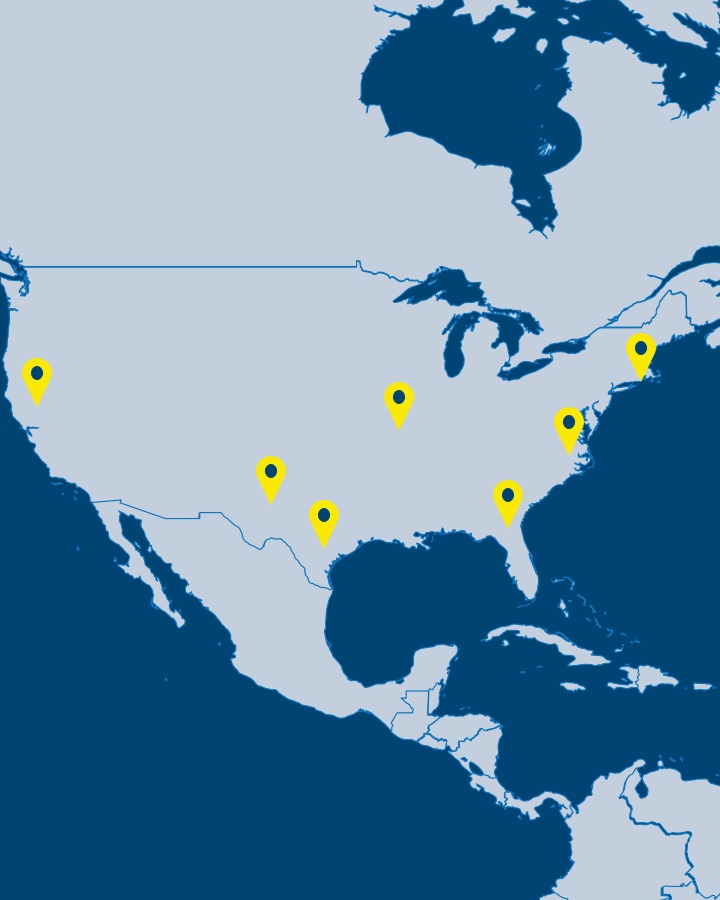Saving lives in the wake of a global pandemic
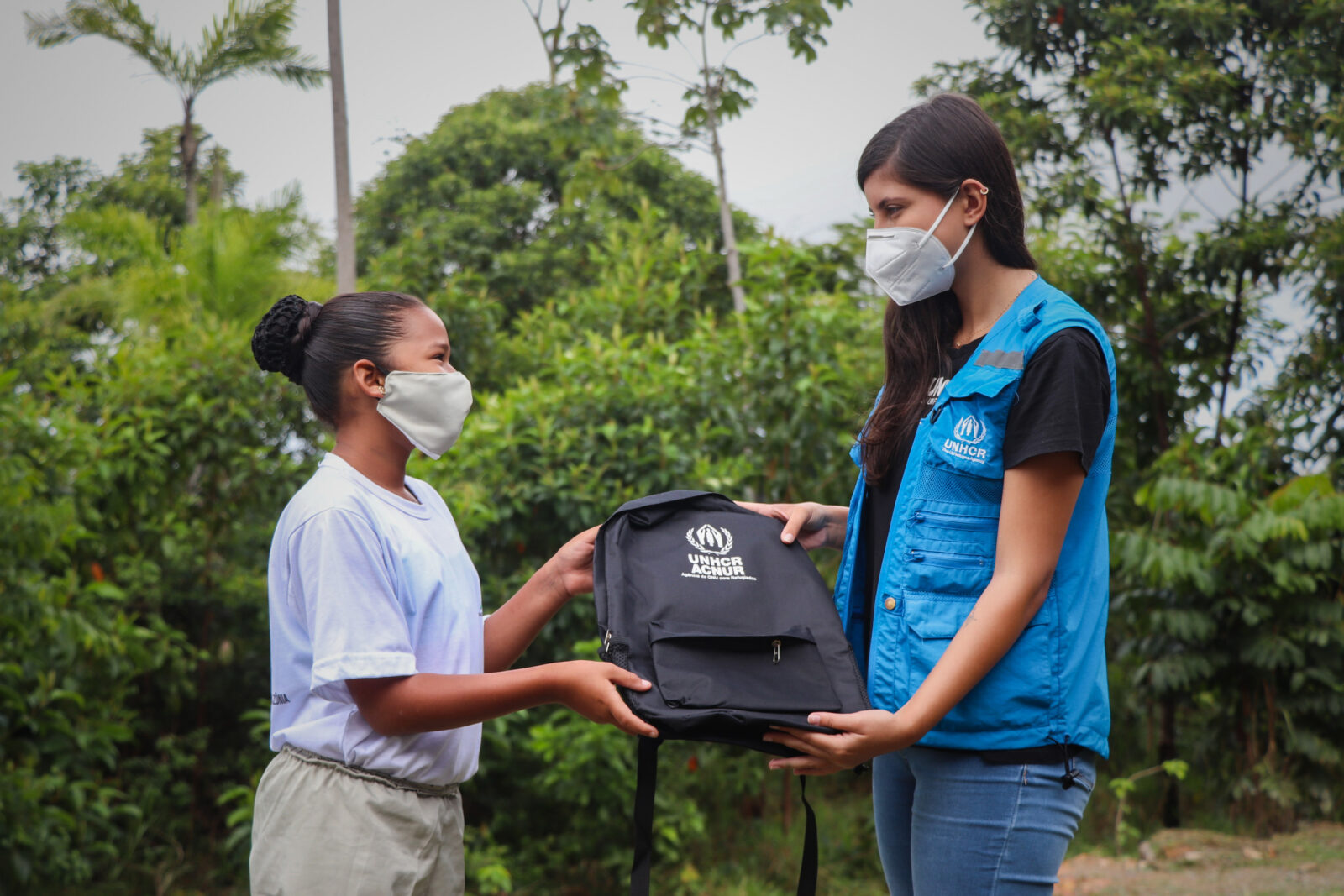
Letter From Our Leadership
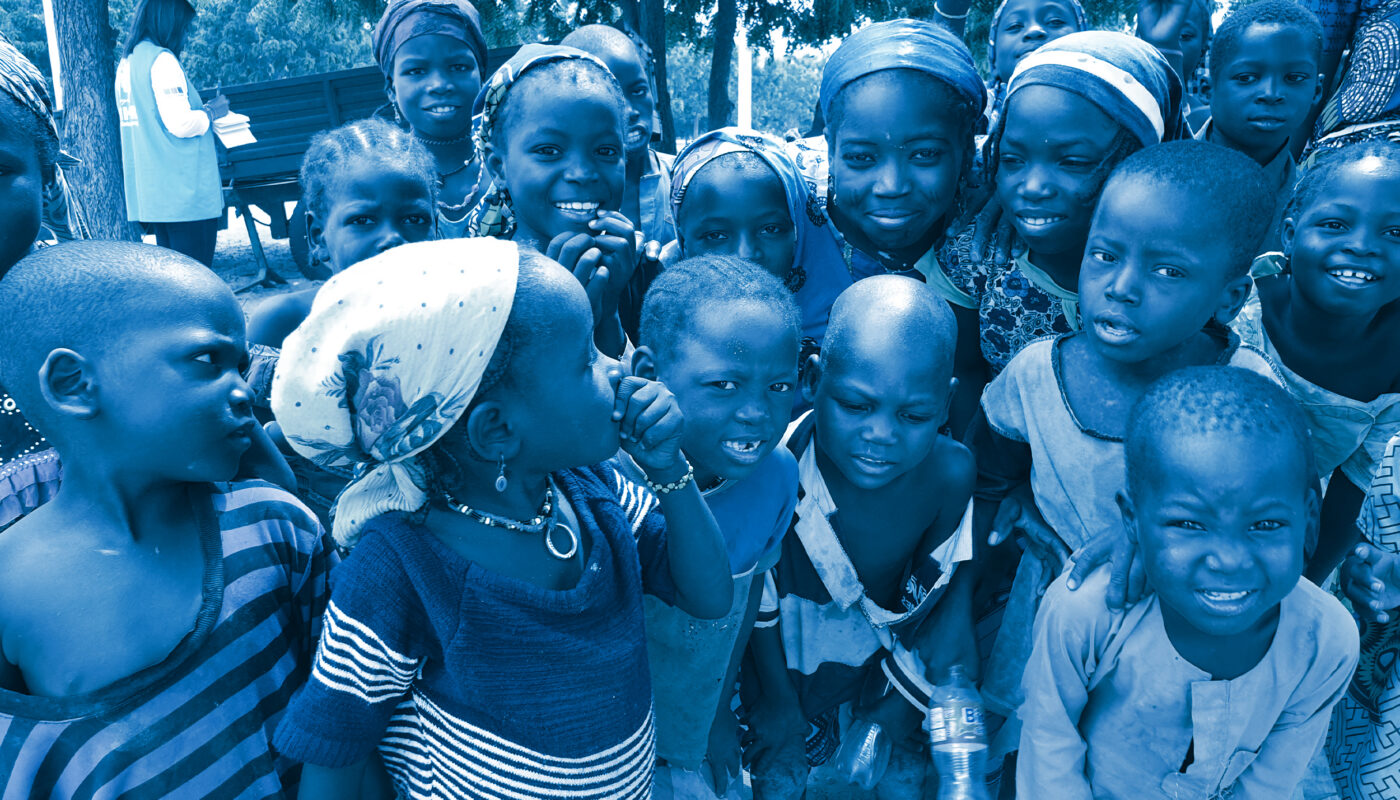
Dear Supporter,
Courage, commitment and creativity are characteristics that shined through from every USA for UNHCR donor and partner in 2020. When the COVID-19 pandemic threatened the foundation of our social, family and work structures, this group of compassionate Americans never wavered in its support for refugees and forcibly displaced families around the world.
USA for UNHCR’s 2020 Annual Report is dedicated to all of you who stayed and delivered for refugees. You met refugees with love and care during a moment when everything was in the balance. This report doesn’t happen without your courage and your commitment to stand with others when all of our own personal lives were so uncertain.
In this report, you will be inspired by the compassion of thousands of Americans who on #GivingTuesdayNow stepped up in the early months of the COVID-19 pandemic to show refugees they were not alone. You will also meet courageous former refugees and new United States citizens, Basma Alawee and Fiston Mwesige, whose stories inspired the groundwork for a national advocacy movement to positively impact refugees globally and resettled refugees in the U.S. And you will witness the creativity and flexibility it took, under unparalleled circumstances, to launch new initiatives that helped make 2020 the most successful fundraising year in the history of USA for UNHCR.
You made history in 2020. Refugees and forcibly displaced families will never forget the love you offered when everything was so uncertain. Thank you for choosing to help at this critically important time.


Mark Wallace
Chair, Board of Directors


Anne-Marie Grey
Executive Director and CEO
2020 at a Glance
Conflicts and persecution have forced nearly 80 million people from their homes. Among them are approximately 29 million refugees – 80 percent of whom are hosted in low and middle-income countries – who were severely impacted by effects of the COVID-19 pandemic. In such a challenging year, donor support was fundamental to help save lives, protect human rights and build a better future for refugees and displaced people worldwide.
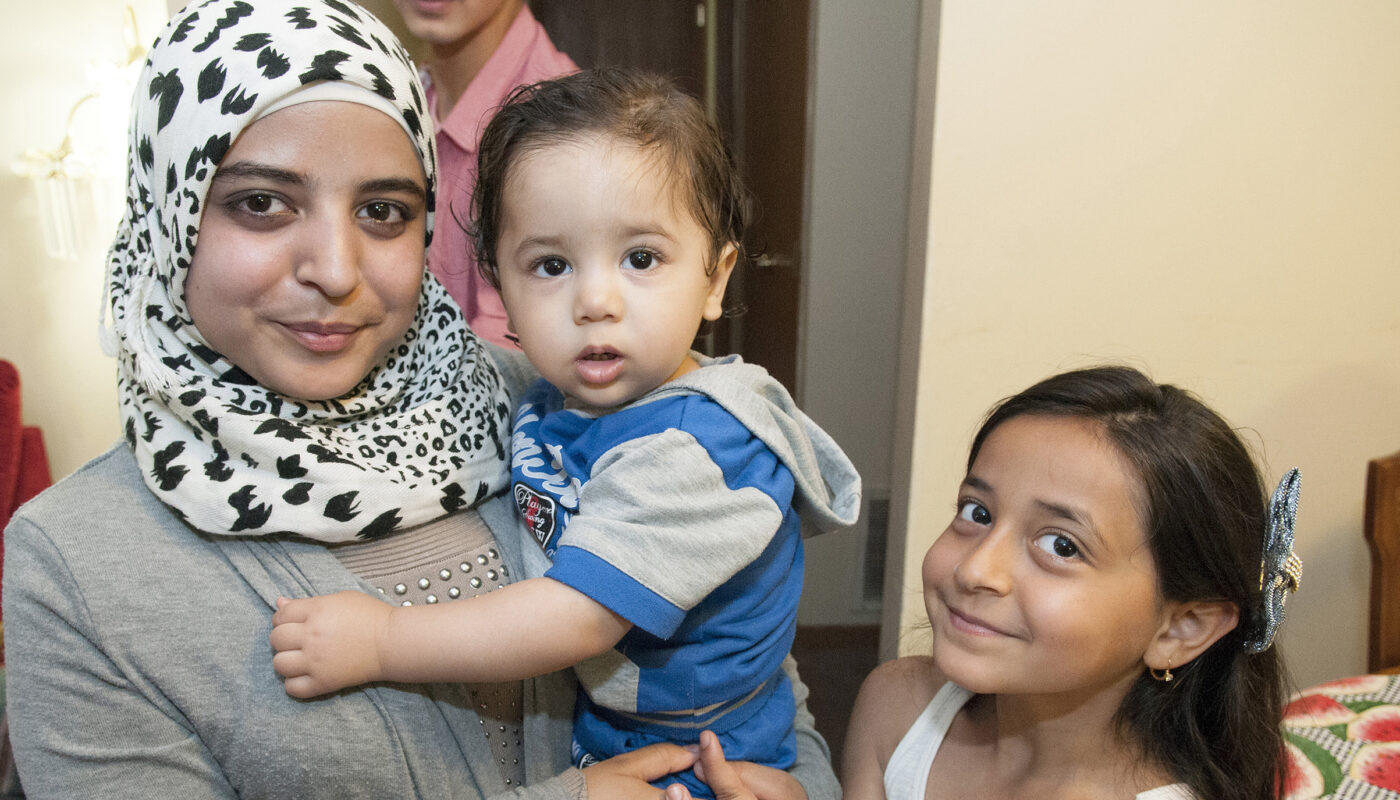
Syria
After a decade of displacement, Syria remains the world’s largest refugee crisis. More than 6.6 million Syrians have been forced to flee their country since 2011 and another 6.7 million people remain internally displaced.
million Syrians need humanitarian assistance - including 6 million who are in acute need.
of Syrian families live in poverty and an additional 1 million people were pushed into poverty in the immediate aftermath of the pandemic.
Syrian refugees received emergency cash assistance to meet their basic and urgent needs during the COVID-19 pandemic.
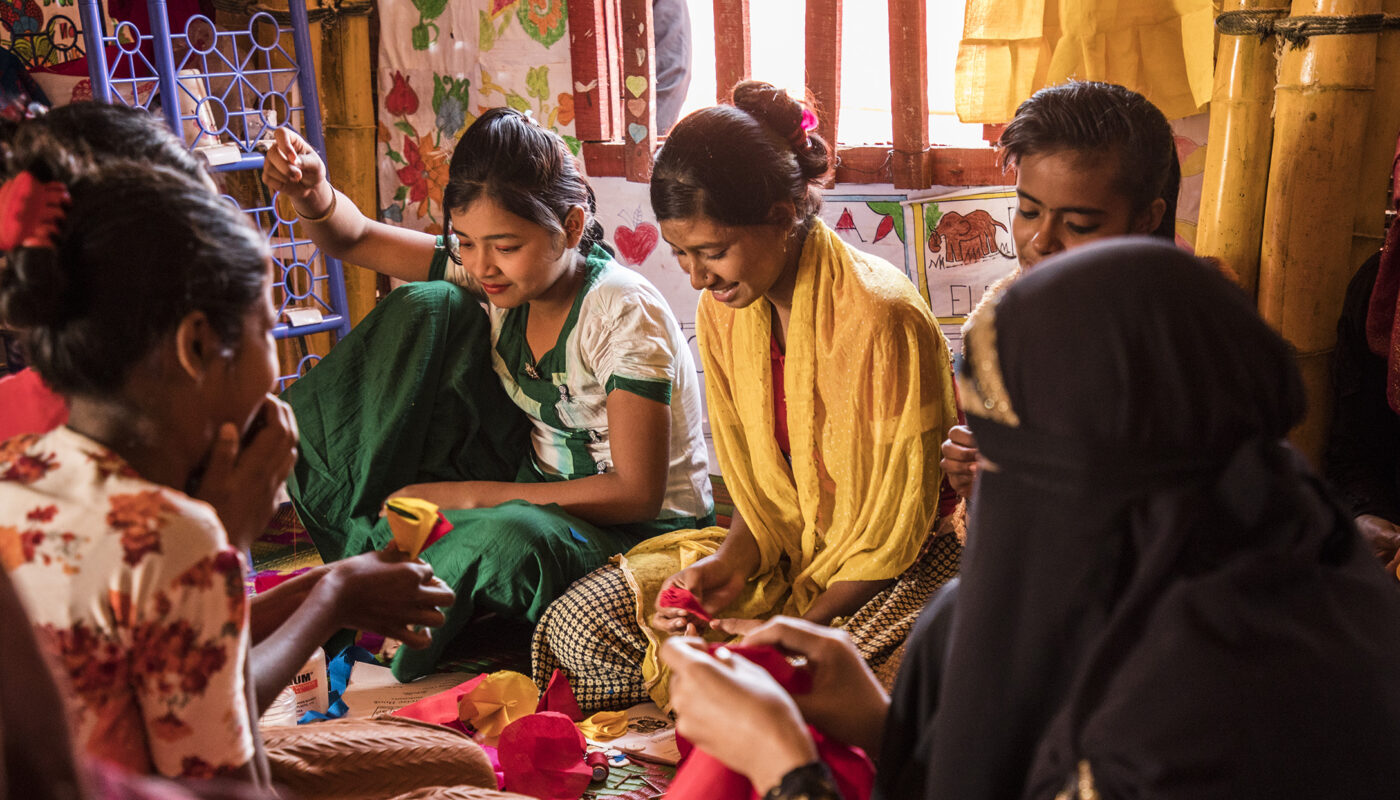
Bangladesh
The Rohingya are the world’s largest stateless population. Since violence broke out in August 2017, more than 880,000 people have been forced to seek refuge in Bangladesh.
Rohingya refugees live in the Kutupalong refugee settlement in Bangladesh, the largest in the world.
of Rohingyas have been displaced outside Myanmar Rakhine State.
handwashing taps and 15,235 hand washing devices were installed in Cox’s Bazar refugee settlements to reduce the transmission of COVID-19.
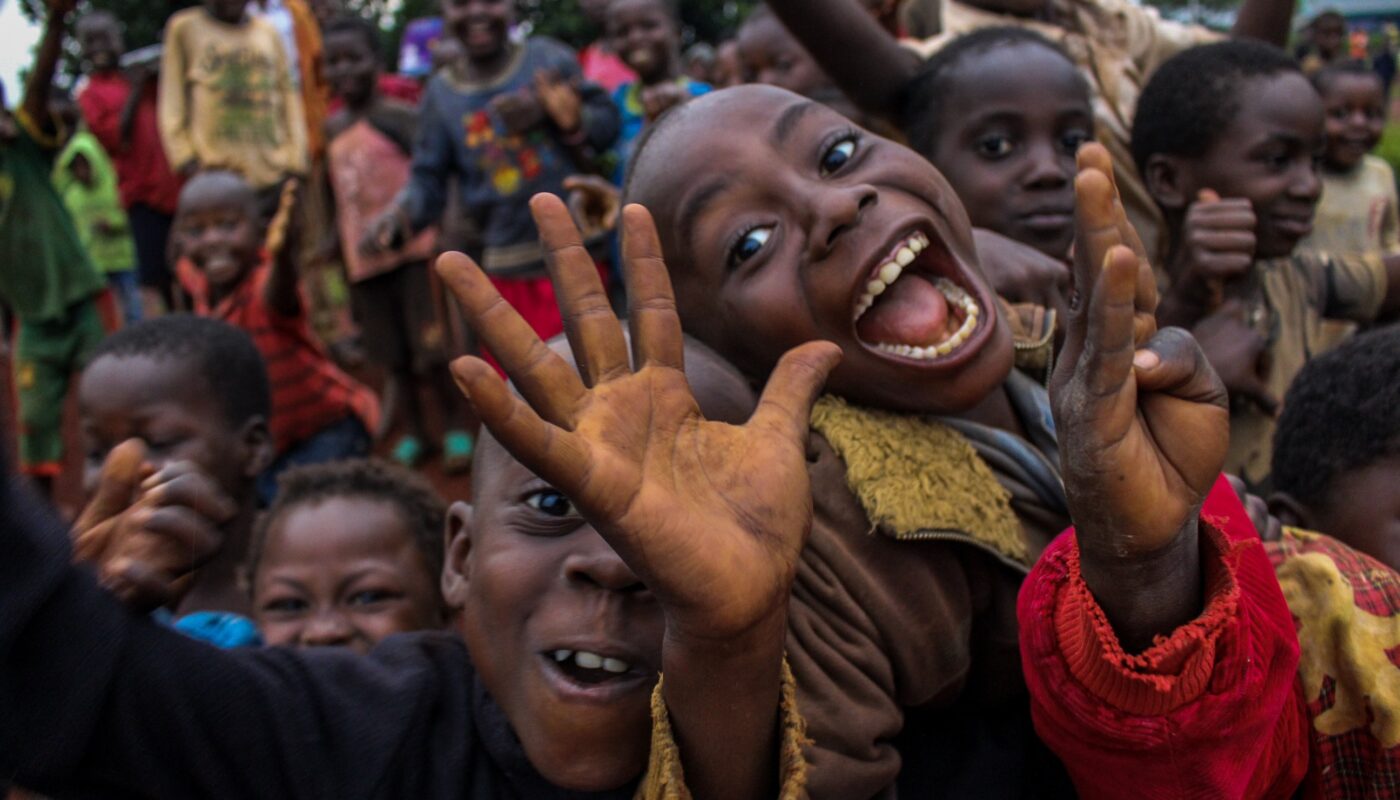
Central African Republic
The Central African Republic has struggled with armed conflict and instability for many years. The most recent surge of violence in December 2020 elevated the number of displaced Central Africans to over 1.5 million – almost a third of the country’s total population.
Central Africans have been displaced from their homes - almost a third of the country’s total population.
people fled the Central African Republic as a result of escalating violence surrounding the 2020 elections. Ninety percent of them found refuge in the Democratic Republic of the Congo.
including refugees, IDPs and host communities- were reached in December 2020 through public information events and radio broadcasts to raise awareness on prevention measures against COVID-19.
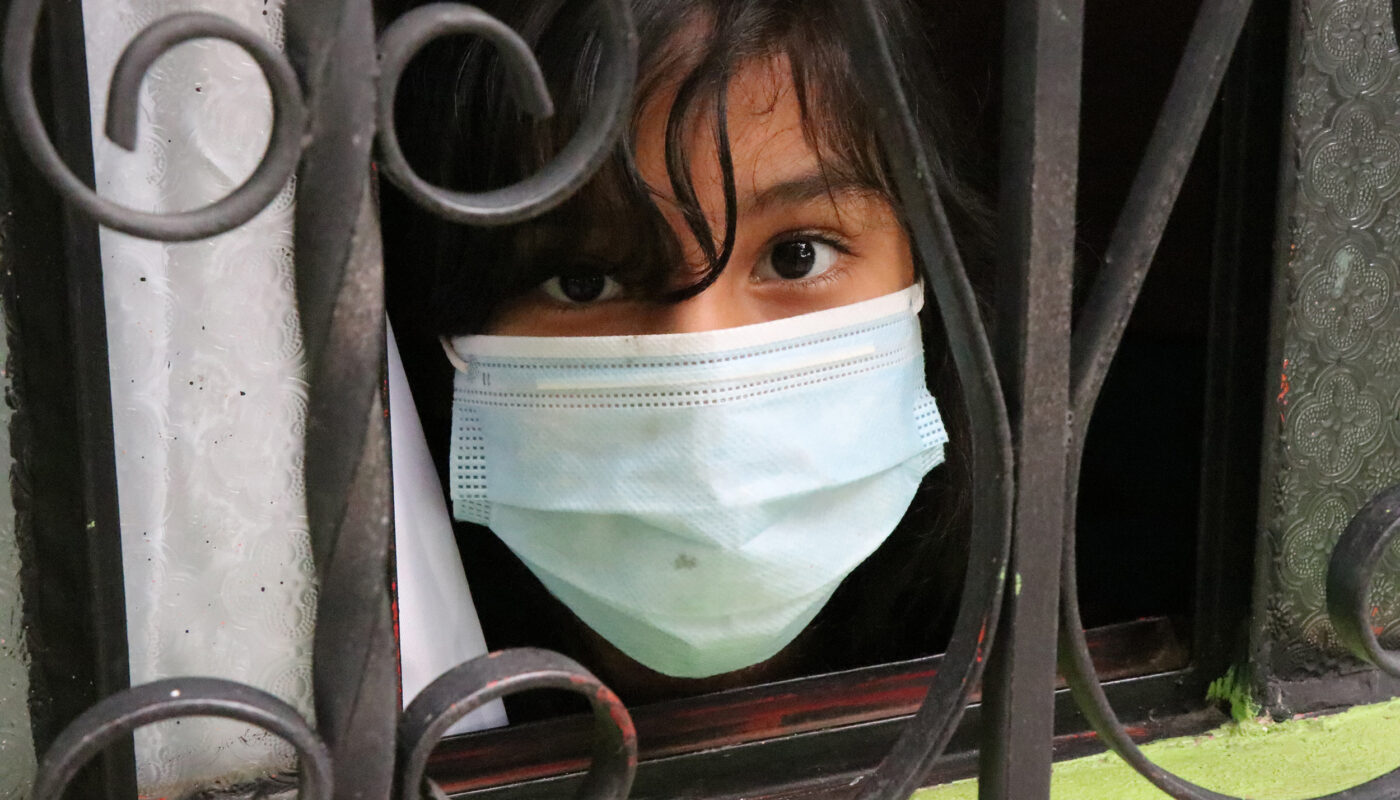
Central America
The North of Central America (NCA) – comprised by Guatemala, Honduras and El Salvador- is one of the most dangerous places on earth. Gang violence, threats, extortion and persecution have forced hundreds of thousands of families to flee their homes in search of safety.
as many people fleeing Central America in the past six years.
of LGBTIQ+ asylum seekers from NCA have suffered sexual and gender-based violence (SGBV) in their home countries.
refugees in Mexico received cash assistance to support their livelihoods since the beginning of the COVID-19 emergency.
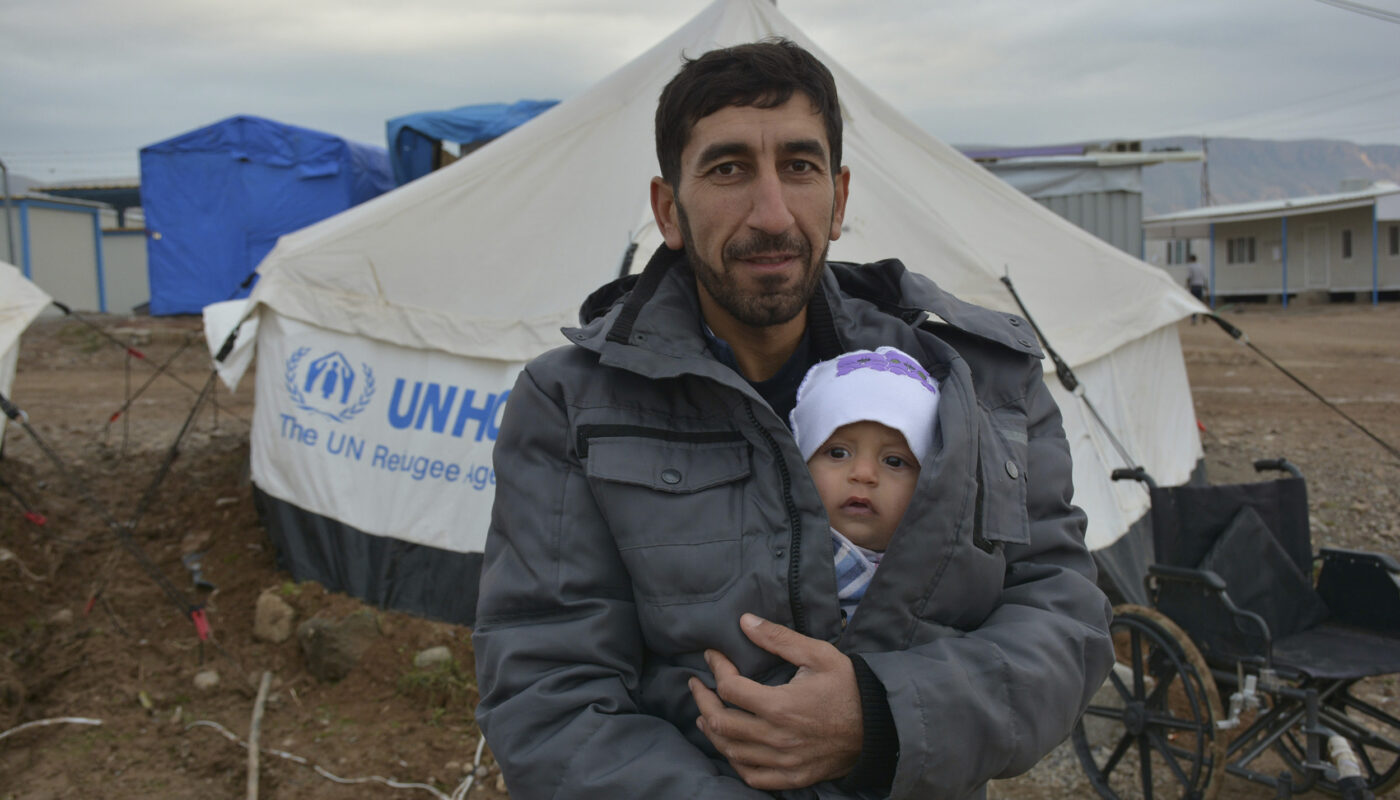
Iraq
The situation in Iraq remains dire. More than 6 million people need humanitarian assistance, including more than a million Iraqis who have been forced to flee their homes but remain displaced inside the country.
million Iraqis have been displaced inside the country since 2014.
of the population living in Iraq’s Kurdistan Region is either a refugee or an internally displaced person.
hygiene and sanitary kits were distributed among women and girls living in refugee camps to limit the spread of COVID-19 and safeguard their well-being.
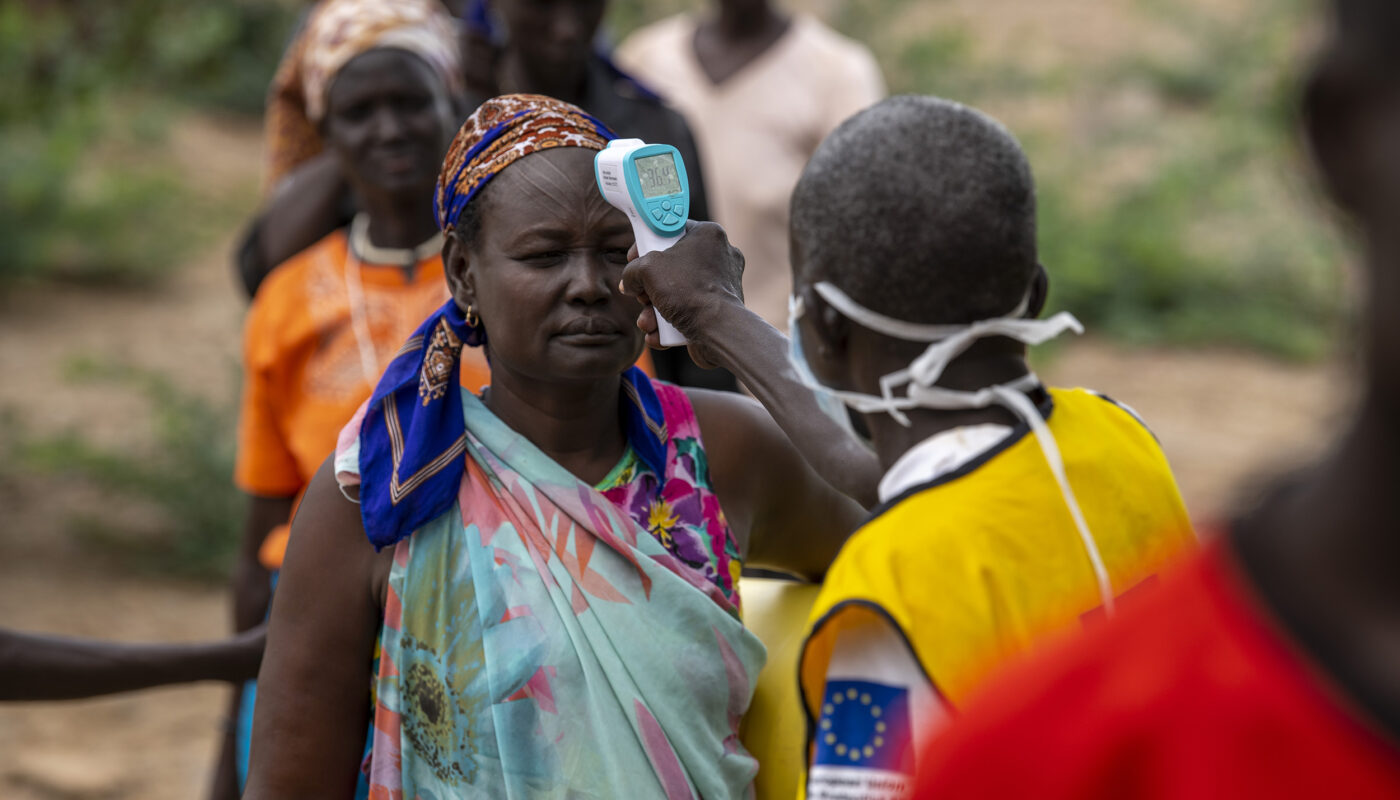
South Sudan
South Sudan remains the largest refugee situation on the African continent. Since December 2013, ongoing violence in the country has forced more than 2.2 people to seek refuge outside the country and another 1.7 million people have become internally displaced.
South Sudanese have sought refuge across the region and another 1.7 million have become internally displaced.
of all South Sudanese refugees are women and children.
bars of soap were delivered to South Sudanese refugees, IDPs and vulnerable host communities in Sudan to prevent the spread of the COVID-19 disease.
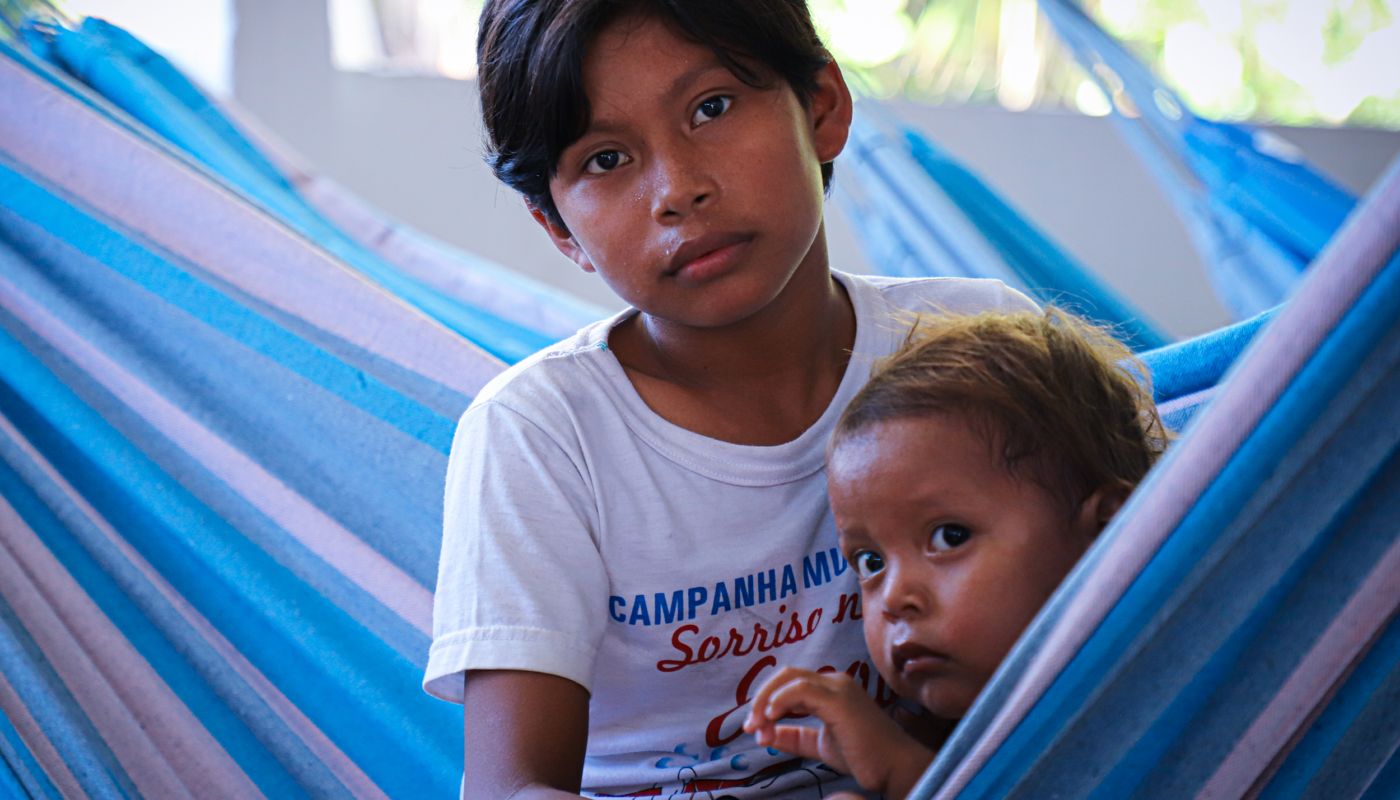
Venezuela
Gang-warfare, violence as well as lack of food, medicines and essential services have forced more than 5.4 million Venezuelans to flee their country in the past seven years. It is the largest exodus in Latin America’s recent history.
Venezuelans have fled the country since 2014.
pending asylum claims from Venezuelans worldwide and more than 2.5 million people have been granted regular stay permits in Latin America.
pieces of personal protective equipment (PPE) – including face masks, gloves, thermometers, disposable gowns, protective glasses and hand sanitizers - were delivered to vulnerable Venezuelans and the host community in Ecuador.
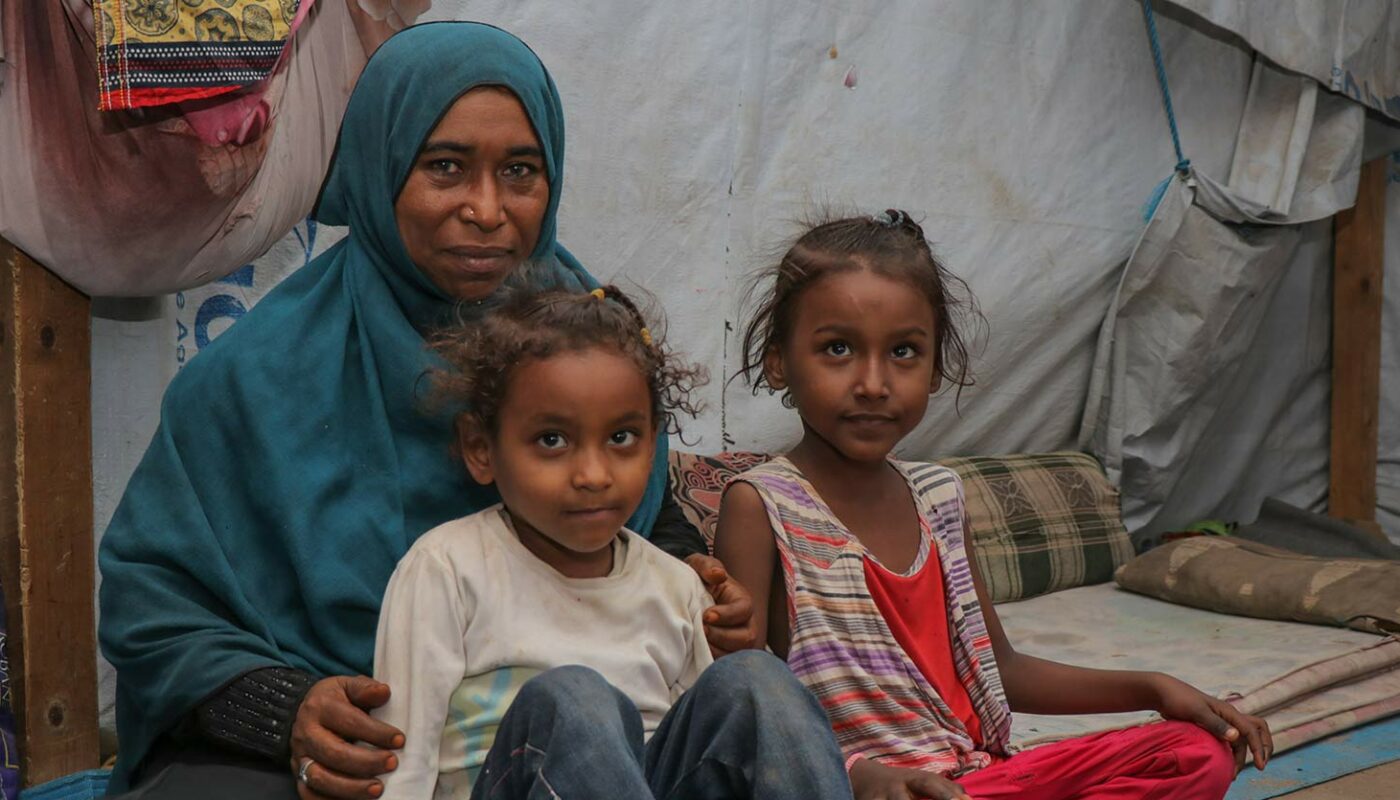
Yemen
Yemen is the worst humanitarian crisis of our time. More than 20 million people are in dire need of humanitarian assistance and the country is on the brink of famine, with tens of thousands already living in famine-like conditions and a staggering 5 million more just one step away from it.
million Yemenis have been forced to flee their homes but remain displaced inside the country.
of Yemen’s displaced population are women and children facing increasingly difficult circumstances. At least one child dies every 10 minutes due to preventable diseases, and in some parts of the country, one child in four is now acutely malnourished.
refugees, asylum-seekers and members of the host community in Aden governorate were assisted in UNHCR-supported clinics and healthcare services during the pandemic.
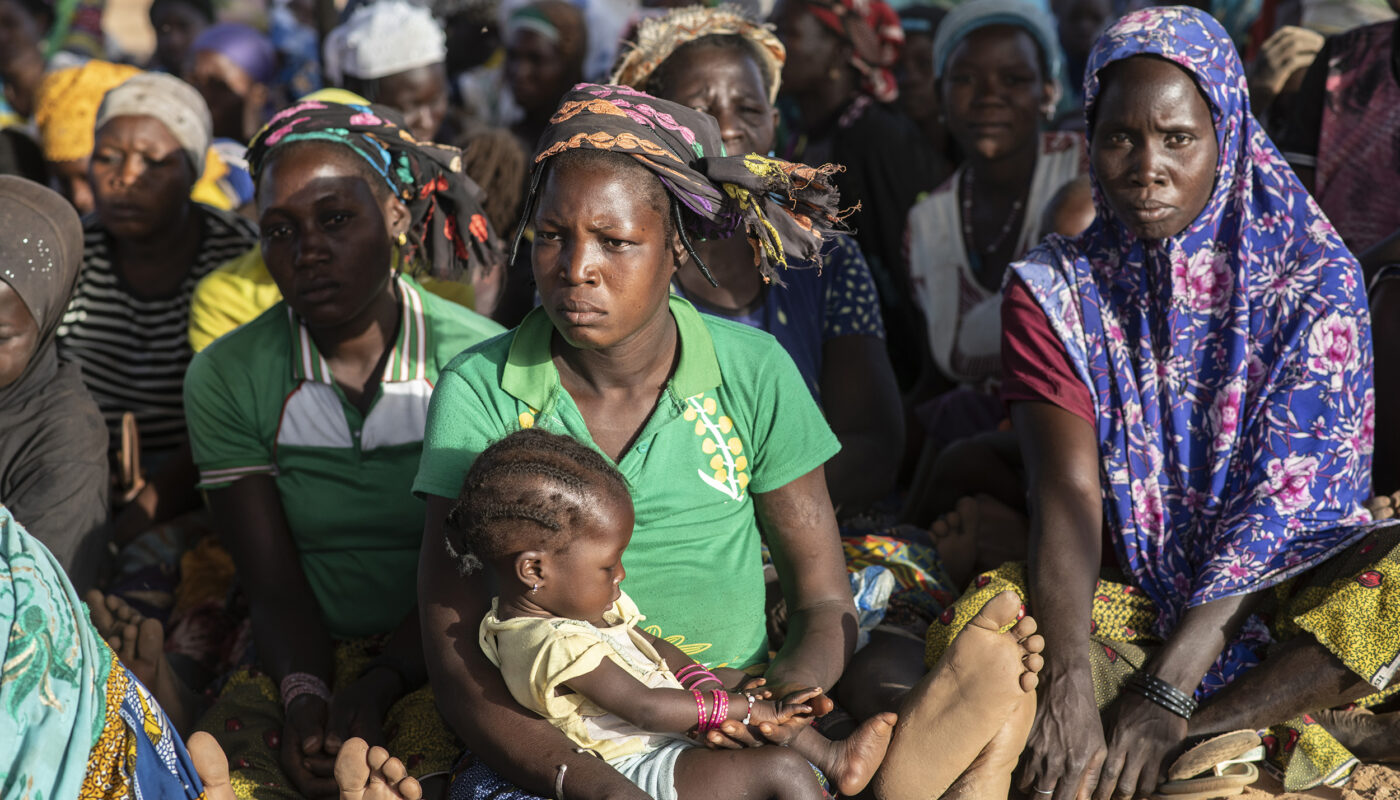
Sahel
The Sahel is facing one of the fastest growing displacement crises in the world. More than 2.7 million people have fled violence in the region and at least 13.4 million people are in dire need of humanitarian assistance.
people require humanitarian assistance – 5 million of them are children.
of Burkina Faso’s population became internally displaced in 2020 alone.
communal and individual water stations, as well as a 169 oz. water reservoir, were installed in refugee and IDP hosting areas in Burkina Faso to mitigate the impact of the COVID-19 pandemic.
Our Values
The six values below represent the best of who we are and who we want to be.
Passionate.
The heads and the hearts of our team members are committed to our mission. It’s not just a commitment, it’s a calling.
Dynamic.
We are committed to continuous evolution – finding the best course of action and taking it.
Transparent.
We are open and honest, with each other and with our donors, partners and other stakeholders.
Cutting Edge.
We aspire to be pioneers and find new approaches to connect others with our mission.
Data Driven.
We analyze data, facts and trends to understand our circumstances, and act on what we learn.
Forward Thinking.
We are outcome-oriented and focused on what’s ahead.
USA FOR UNHCR: A Great Place to Work
In July 2020, USA for UNHCR was recognized as a Great Place to Work® for its strong workplace culture, approachable management and the consistent positive experiences of employees. The Great Place to Work Recognition is the global authority on workplace culture, employee experience and leadership behaviors based on data compiled from more than 100 million employee engagement surveys around the globe. Their unparalleled benchmark data helps organizations quantify their culture and produce better business results by creating a high-trust work experience for all employees. In the survey, 92 percent of USA for UNHCR employees said the organization is a great place to work – more than 30 percent above the average U.S. company.
Our Strategic Framework
Our multi-year strategic framework focuses on five goals that are charting the course of USA for UNHCR’s work in today’s complex global environment:
- Inspire interest, empathy and action for refugee rights and issues through compelling content and multi-audience engagement.
- Elevate results by investing in exceptional programs that catalyze change and make a difference in the lives of refugees.
- Enable organizational excellence, sustained growth and a best-in-class donor experience through data analytics, technology and funding.
- Bring together high-quality talent and expertise to facilitate novel approaches and lead new ways of thinking to tackle critical refugee issues.
- Cultivate the “connective tissue” between private sector opportunities in the refugee market and key partners.
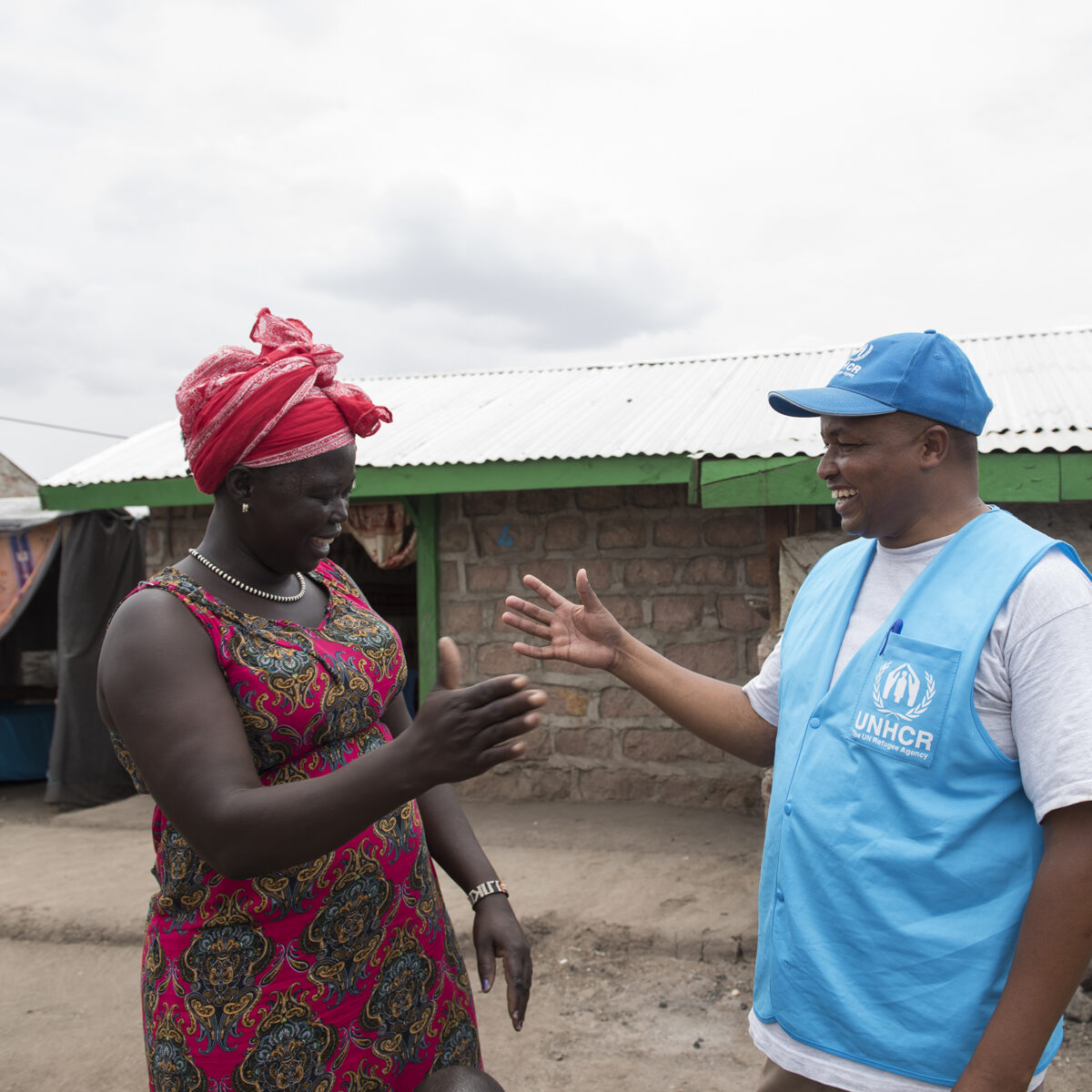 © UNHCR/Hannah Maule-ffinch
© UNHCR/Hannah Maule-ffinch

Global Crisis at a Glance
As the year 2020 got underway, an estimated 79.5 million people remained forcibly displaced and fewer were able to return home as a result of the COVID-19 pandemic – which represents a 22 percent decrease vis-à-vis 2019.
 © UNHCR/Jaime Giménez
© UNHCR/Jaime Giménez
Investing In Impact for Refugees
USA for UNHCR serves vulnerable people around the world who have been forced to flee their homes because of violence, conflict and persecution. Through the generosity of the American people, we help refugees survive, provide hope for recovery and prepare them for independence in a new and permanent home.
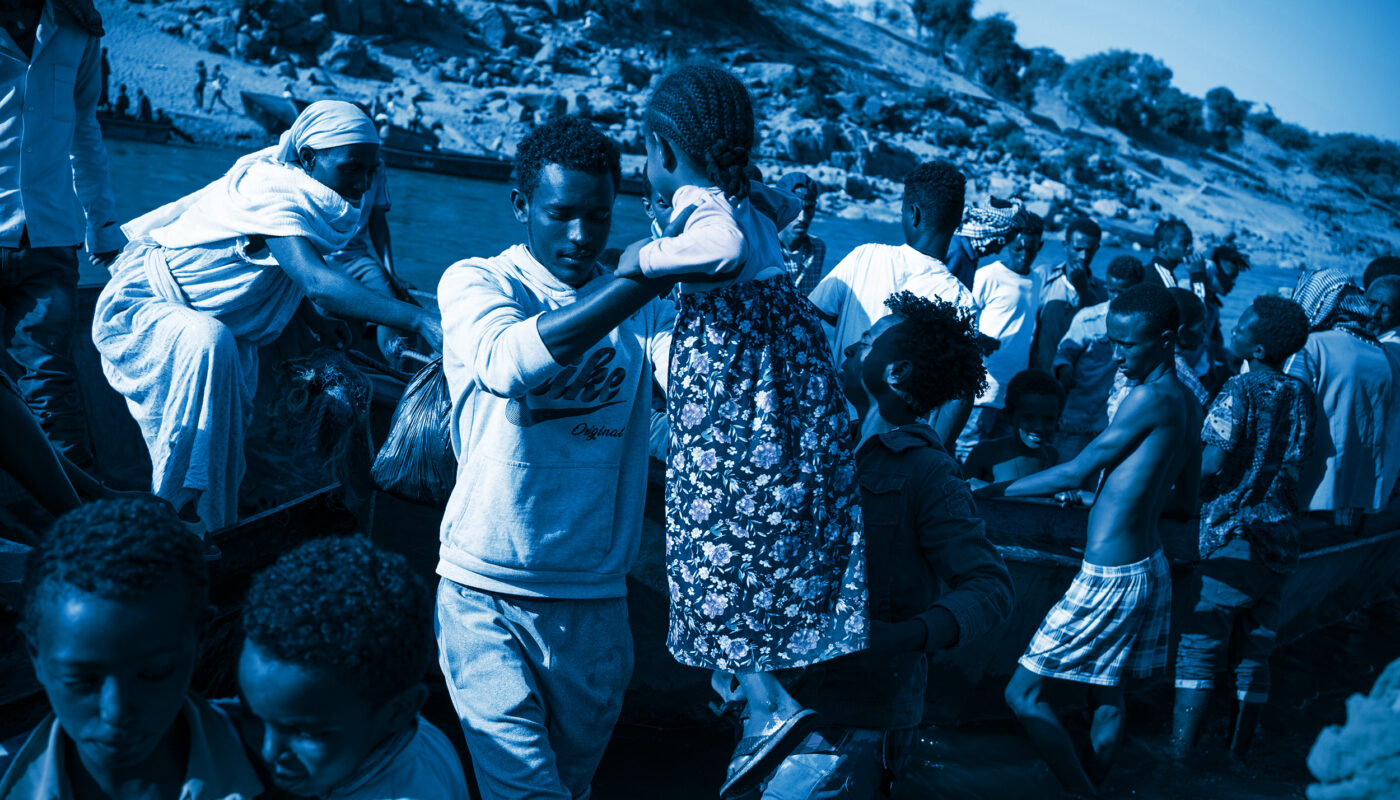
Help
When people are forced to flee they often leave everything behind – their homes, their belongings and sometimes even their loved ones. They embark on dangerous journeys with no guarantee of safety at the end just to find a safe place to live.
When a new emergency arises, USA for UNCHR is on the ground saving lives and making sure people’s first needs are met. We do this by providing food, clean water, shelter, medical care and, most importantly, protection of their rights and dignity.
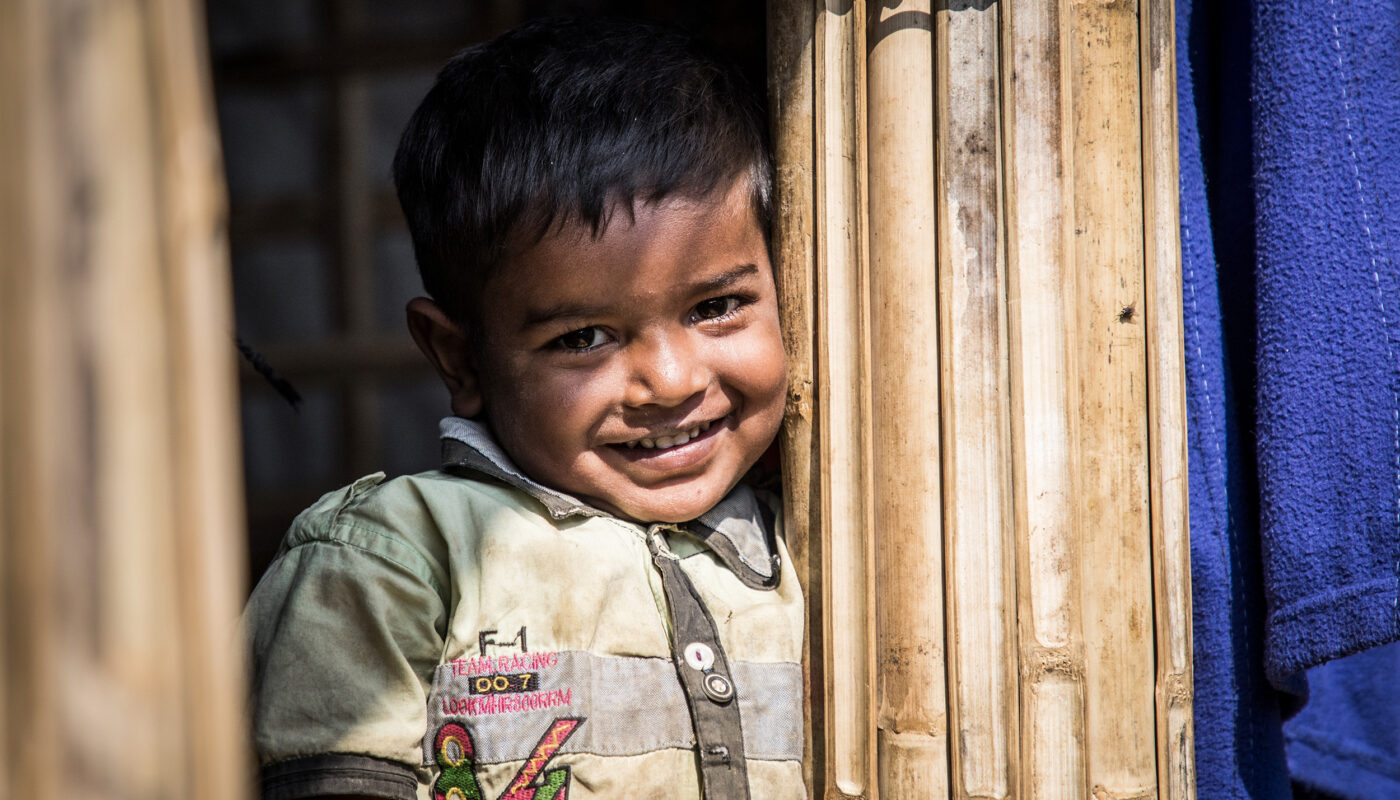
Rohingya
3-year-old Ayaz stands in the doorway of his new monsoon-ready shelter where he lives with his family in Kutupalong settlement, Bangladesh. In 2017, violence and serious human rights violations in Myanmar’s Rakhine State forced more than 800,000 Rohingyas to flee their homes and seek refuge in Bangladesh. Many of them settled on hillsides and makeshift shelters prone to floods and landslides during the monsoon season.

Hope
A refugee’s journey does not end when they reach a place of safety. Once people get the emergency care and shelter they need, they often need to wait in limbo for a long time — sometimes 20 years — while they find a new home. Life doesn’t stop in that interim: children need education, families need income and dreams need to be restored. USA for UNHCR is always searching for ways to power hope and restore some semblance of normalcy.

Ethiopia's Tigray Region
Ethiopian refugee Ngesti holds her 2-year-old daughter inside their shelter in Um Rakuba refugee camp, Sudan. Since November 2020, a full-scale humanitarian crisis unfolded in Ethiopia’s Tigray region, forcing more than 2.7 million people to flee their homes.
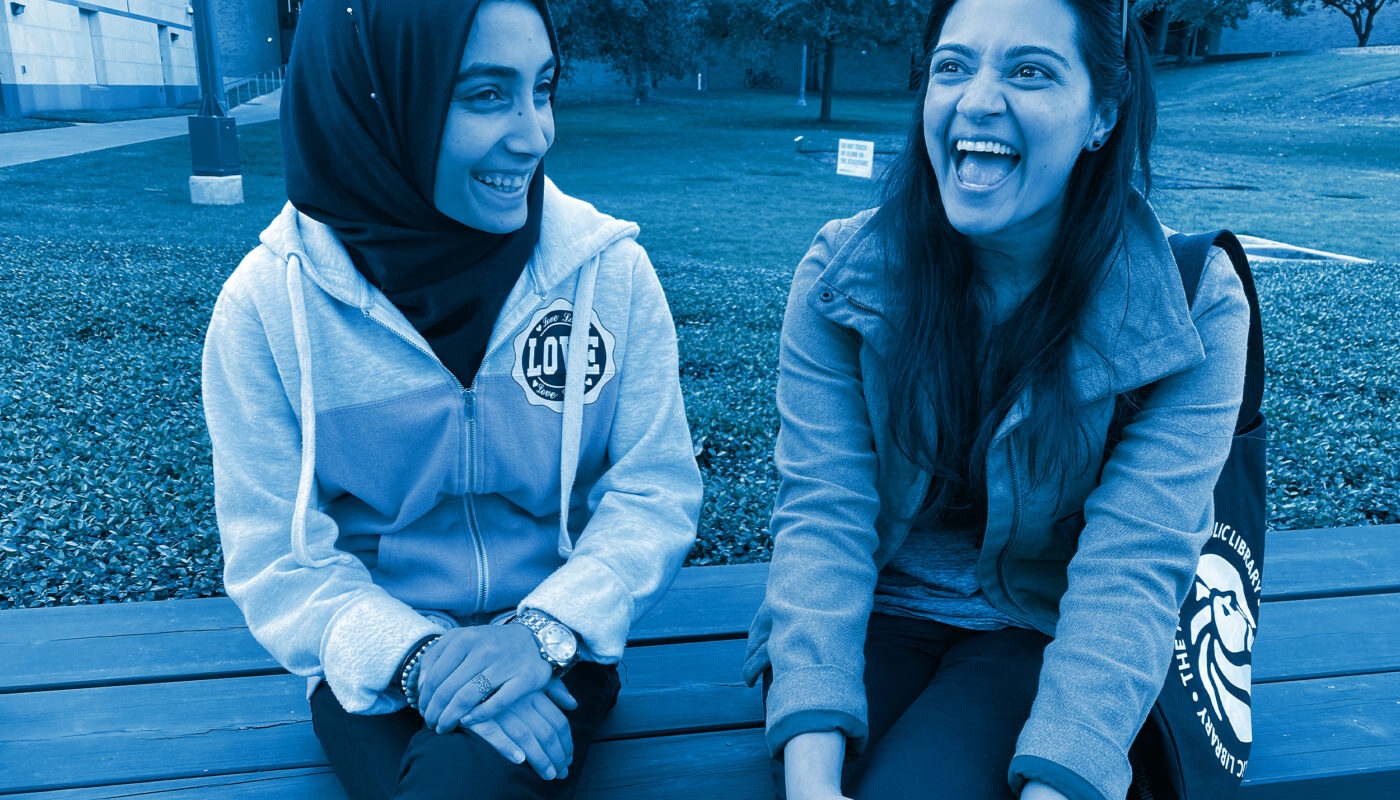
Home
Every person forced to flee wants to find a safe place to call home, where they can build a future for themselves and their families. Once refugees are resettled into a new country or return to their homes, they need adequate support to learn how to navigate the complexities of a new place. USA for UNHCR works closely with other organizations and community-based programs to help refugees feel welcomed in the United States and to promote acceptance and understanding of their plight.
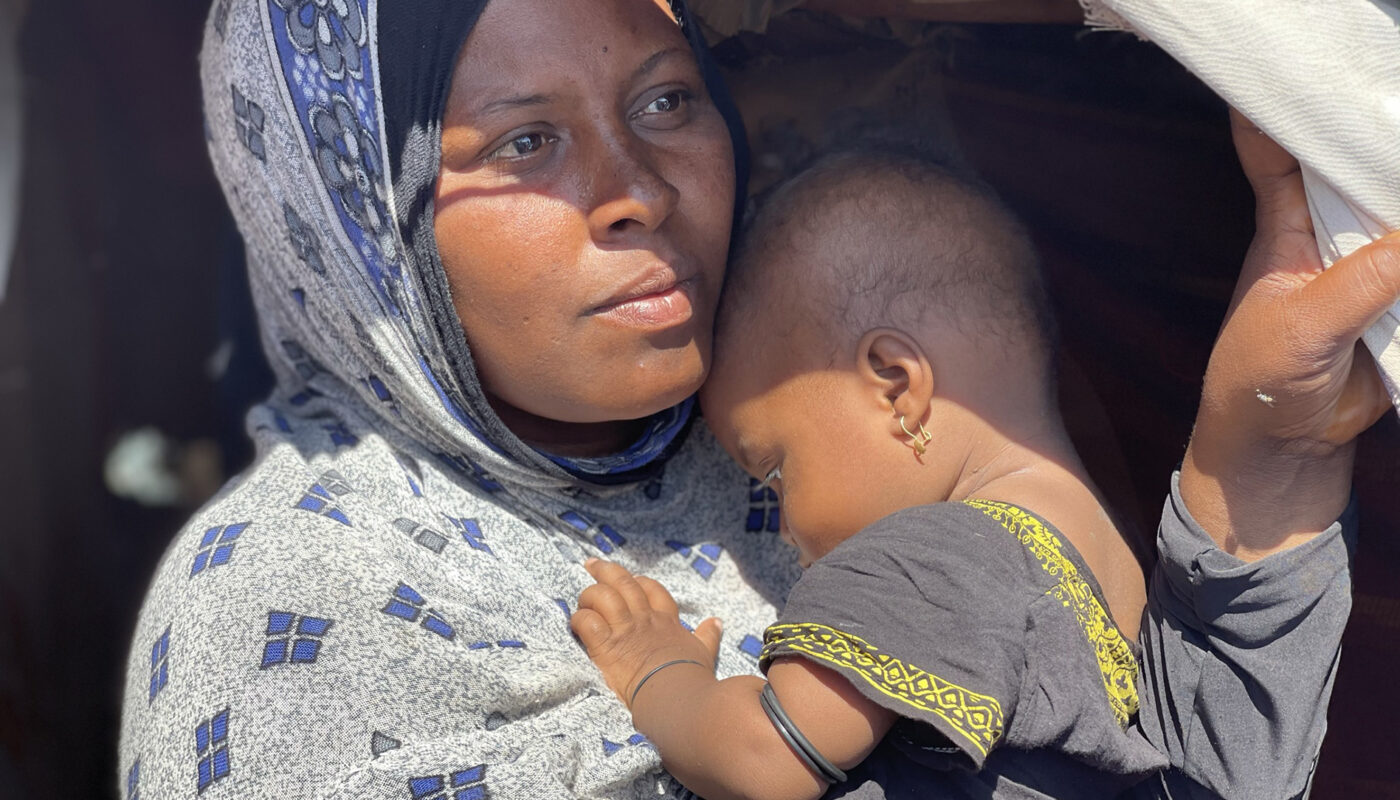
Yemen
Lubna holds her child at a site in Al Mukha, Yemen, where she has been receiving cash assistance from UNHCR. Violence in Yemen has forced more than 4 million people to flee their homes and has left tens of thousands living in famine-like conditions. It is the worst humanitarian crisis of our time.
2020 Financial Report
(as of December 31, 2020)The following is a summary of financial information of the U.S. Association for UNHCR for the year 2020. USA for UNHCR is classified as a tax-exempt organization under section 501(c)(3) of the Internal Revenue Service Code and is qualified for charitable contribution deductions.
All donations to USA for UNHCR are tax deductible to the fullest extent allowed by law. USA for UNHCR Federal Tax Identification Number is 52-1662800.
All donations to USA for UNHCR are tax deductible to the fullest extent allowed by law. USA for UNHCR Federal Tax Identification Number is 52-1662800.
| Revenue | 2020 | 2019 |
|---|---|---|
| Grants and Contributions | $44,991,525 | $41,362,147 |
Corporation and Foundation Grants |
$6,189,450 | $8,408,937 |
| Interest and Investment Income | $45,774 | $213,716 |
| In-Kind Contributions | $41,057,050 | $2,908,093 |
| Contributions from UNHCR | $10,776,897 | $11,211,701 |
| Total Revenue | $96,871,246 | $58,987,815 |
| Expenses | ||
|---|---|---|
| Program Services | $72,869,668 | $36,929,357 |
| Supporting Services | ||
Management and General |
$2,938,243 | $2,526,058 |
Fundraising |
$18,932,063 | $18,122,075 |
Total Supporting Services |
$21,870,306 | $20,648,133 |
| Total Expenses | $94,739,974 | $57,577,490 |
| Changes in Net Assets | $2,131,272 | -$1,881,833 |
|---|---|---|
| Net Assets at Beginning of Year | $14,772,191 | $16,654,024 |
| Net Assets at End of Year | $16,903,463 | $14,772,191 |
The complete financial statements for 2020 are available upon request from USA for UNHCR. The firm of Gelman, Rosenberg & Freedman is USA for UNHCR’s auditor.
Our Board
USA for UNHCR is governed by an engaging and cohesive Board of Directors who share a commitment to the goals and objectives of the United Nations High Commissioner for Refugees (UNHCR). With an extensive knowledge base and various expertise our Board provides advice on policy, advocacy, fundraising and programming.
-
Mark Wallace, Chair
-
Kelly Blevins, Vice Chair
-
William Ball, Secretary
-
Yasmin Causer, Treasurer
-
Biar K. Atem, Board Member
-
Latrise Brissett, Board Member
-
Laura Lane, Board Member
-
Matthew Marolda, Board Member
-
Susan McPherson, Board Member
-
Jane Meseck, Board Member
-
Virginia Tenpenny, Board Member
-
Beth Turner, Board Member
-
Dr. Liberty Vittert, Board Member











